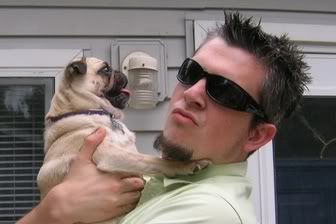These kind of experiments I find a bit cagey with the use of college students. Throw in a few dock workers, teenagers and DMV employees and lets see what shakes out. Still, I like some of the theory:
Once again, they found that the angry subjects were better able to discriminate between strong and weak arguments than the ones who were not angry—suggesting that anger can transform even those people who are, by disposition, not very analytical into more careful thinkers.
Does being angry boil away the superfluous and leave the critical? This is begging for follow up studies.

1 comment:
I just so happen to have this month's PSPB on my desk, so...
Looking at the discussion in the original article, Moons & Mackie cite Schwarz's "mood as information model" as the most likely explanation. Happy people tend not to think much about their decision making. If they're happy, then the environment is most likely fairly benign at the moment, so the outcome doesn't really matter. Prior research has demonstrated that people who are sad take longer to make a decision - something in the environment has put them in a sad state, so it's worth a more careful examination. It seems that the same is true for anger, as well.
One thing that the authors note is that this was a pretty low-arousal anger. Bumping up the physiological arousal factor (say, to "rage" instead) would probably lead to poor decision making.
As far as the college-student sample being a problem, well, that's old news (at least in social psychology circles). The thing to keep in mind here is to ask whether a community sample would've responded any differently. Given that these are UC Santa Barbara students, I suppose the case can be made that they're going to be more analytical over-all than the general population, but unless one can think of a reason why they would respond to the experimental manipulation in different ways, does it matter? Probably not, but as a social psychologist myself, I'll admit to some bias.
Post a Comment